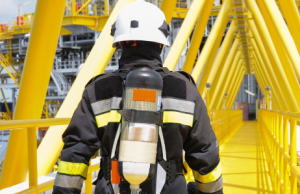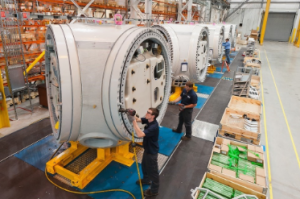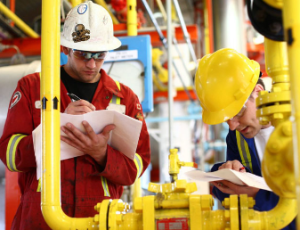
The natural gas sector constitutes an important element in the international energy sector. It offers cleaner options for other fossil fuels, such as coal and oil, hence it is very instrumental in the world’s transition into cleaner forms of energy. However, such an industry has its own unique requirements in terms of skills and knowledge, technical and safety wise. This is the point where deep level training is needed.
For someone looking to go into the natural gas industry, proper training is not an added advantage. It doesn’t matter if one is a field operative, an engineer, or a technician; these skills help in ensuring that processes are offered in a safe and sound manner. The next section deals with the aspects such training is given enormous importance and how they impact the career cycle of people in this domain.
The first concern in the natural gas industry is security. Workers tend to come into contact with pneumatic devices, strong machinery, and even toxic materials; all of which pose serious dangers. But then again adequate training may keep such environments from becoming murderous – that is, turning toward the sort of accidents that not only injure personnel but also ecological concerns.
Also, training enhances efficiency of operation. High-tech equipment and complicated procedures appearing in the capture, transfer and treatment of gas are integral to the industry. Employees are taught how to use the equipment and to coordinate the processes to achieve the desired results. When employees are adequately trained, they are able to perform complicated tasks without difficulty and take less time to resolve issues.
Training programs in the natural gas industry reach numerous topics. These programs ensure that workers can handle the challenges of the job, and these range from safety measures to technical skills. Below some common kinds of natural gas industry training offered in the industry:

Safety is always the primary concern in the natural gas industry. Gas workers perform their duties in high risk areas so it’s important to know about hazard situations as well as preventive actions and emergency response. Safety training includes the use of personal protective equipment (PPE) and how to deal with gas, fire or equipment failure incidents.
During safety training, trainees are taken through the safety procedures, the identification of risks and dangers, as well as the use of safety gear. They are also given instruction on how to handle emergencies with the aim of equipping them with skills on what to do in such situations at work. Additionally, organized Improvement training helps the employee to know and practice the recent changes.

Technical training is crucial for every individual who is in control of any machine or equipment in the form of natural gas. This training includes understanding how to operate and manage drilling rigs, gas pipelines, and gas compressor machinery.
They are shown how the systems are monitored, how checks are carried out, and what to do in case of failure of the normal systems. Moreover, some technical training covers the use of this technology in operations since the trend in many gas plants today is the use of integrated automated systems.

The gas industry takes environmental protection seriously. Workers need to be aware of the effects of their actions to the environment, and what they can do to reduce them. Environmental awareness training teaches employees how to cut down on emissions, control waste and adhere to provisions aimed at conservation.
This kind of natural gas industry training also prepares employees in the use of non-toxic materials, cleaning up of toxic waste and water usage among others. In this age where environmental policies are strict, this training is important in enabling the companies to achieve their purpose without harming the environment in fact helping to reduce it.

The gas business is not only controlled but controlled with many rules and regulations that all companies and even workers must abide with. The importance of compliance training is particularly true for employees even due to the fact that restrictions are imposed on legal liability for breach of the applicable rules and regulations. Here, legal regulations concern operating variables like production, transport and retailing distribution of gas to end users which involve federal and state legislation plus local laws or even treaties with towns.
Employees understand the need for permits, inspections, and reporting requirements, making them adhere to the law in the course of performing their duties. For ignoring these guidelines will bring penalties, cessation of work, or disasters hence this course is fundamental in the efficiency of the operations.
There are also some other reasons why different positions need different natural gas industry training. Whether it is construction, a processing facility or even an office, there is a specific skill that you must possess in order to function effectively. Below is a more detailed exposition on the different types of training that would be required on different roles.
Field workers serve as the first avenue for labor hire in the natural gas energy sector as they work on drilling rigs, laying pipelines, and also in remote areas. These workers undergo in-depth safety as well as technical training because of the practical nature of their jobs.
There is an element of heavy machine operation, monitoring systems, and maintenance management even when the weather is unfit for such activities. Safety is of utmost importance because they encounter the most dangerous scenarios, which include gas leaks, blasts, and even machine malfunctions.
Designing and overseeing the construction of any natural gas supply infrastructure is mainly through the work of engineers. The curriculum of these specialists revolves around the advanced aspects of engineering such as managing projects, designing the systems, and resolving different issues that may be complex.
Environmental compliance is yet another area emphasized in engineering training, which makes it possible to avoid overexploitation of resources. Their area of work is very complex and technical hence the need for training from time to time in order to catch up with new developments in the field.
Technicians perform machine maintenance functions and also oversee the proper functioning of different systems. Their training comprises practical aspects as well as safety measures geared towards preventing accidents. They are trained to appreciate how the different types of engines work, how to service them, and how to repair them when they break down.
In most situations, technicians have to undertake training and obtain certificates in specialized fields, such as gas mains or pump training. This training aids them in being relevant to the continuously changing trends and technologies in the industry.
Management administration runs things and sees that everything meets the operational and safety standards. Thus, the training for this position is leadership, safety management, and compliance with regulations.
They have to make sure that every worker adheres to the training, and the safety measures are being practiced. Besides the technical aspects of their work, managers should also understand business and social aspects to coordinate their teams better.
Most often than not, employees are required to have special credentials when working in the gas and oil sector. such credentials prove the capacity of an individual to perform their work without endangering themselves or anyone else in the process. Such credentials cover a wide variety of activities ranging from awarding H2s related safety film, training, and assessment, to courses on gas pipe work or gas equipment servicing.
In some organizations, there are training centers for aerospace quality management systems in other places. However, some will not hesitate to send the workers for training outside the organization. Possessing these certifications enhances an employee’s worth to the organization and enables the individual to conform to the requirements belied by the profession.
Training is vital, but it is not so easy to carry out. Change is one constant factor in the gas sector, with new technologies and rules being witnessed every other time. Training on such changes will always be a draw on resources as it will need to be ongoing.
To add, there is the aspect of the job being high-risk. Everyone must be ready for such occurrences and that means carrying out safety drills and short courses often. Also, the contents of a training program have to be changed regularly to accommodate the current industry practices and trends.
In spite of all these challenges, benefits of proper training policy implementation outweigh the costs. When training is worthwhile, the organizations experience fewer accidents, heightened operational efficiency, and maintain various laws and regulations governing their business activities. In the end, productive trained workers improve business results.
Growth of the natural gas market is equated to an increase in demand for various skilled labor. Consequently, training strategies must improve with every new technological advancement and implementation of new laws. More stress would be in gravitating towards digitalization, robotics, eco-friendly approaches.
Gone are the days when trainees had to engage in actual operations. Computer-based training and virtual reality have made it possible for them to interact and experience operations without the associated threats of undertaking the real operation. These technologies improve efficiency and reduce the costs of carrying out training programs, which allows for a larger number of the workforce to keep abreast with the current demands of the industry.
The transition to renewable energy sources will take time, during which period the natural gas sector will facilitate the bridging of conventional fossil fuels and renewable energies. In this respect, training will be crucial to ensure that workers will neither be overwhelmed during the shift nor will they cause any harm while operating the natural gas supply systems for years to follow.
The LNG industry relies fundamentally on training. This makes it possible for employees to remain safe, competent, and able to face the threats that come with this ever-evolving and demanding industry. The appropriate training makes it easier for employees to achieve the organization’s objectives and helps the organization run effectively and responsibly.
Training programs will also change due to technological progress and the ever-increasing interest in environmental issues. Employees of the natural gas sector need to have the spirit of dedication towards overcoming challenges posed by their ever-changing work environment. In this way, they will not only enhance their professional growth but will also help ensure the viability and success of this particular industry into the future.
Also Read: Comprehensive Guide to Oil and Gas Health and Safety